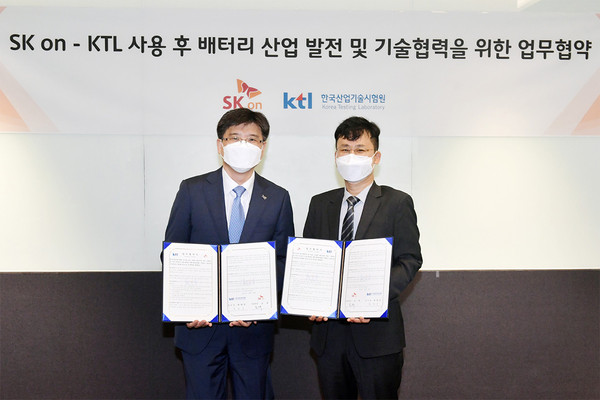The spent battery market is expected to see explosive growth in the future
SK On signed a memorandum with the Korea Testing Laboratory (KTL) to jointly establish a spent battery performance evaluation method and system on Oct. 8.
KTL placed under the Korean Ministry of Trade, Industry and Energy is the only public organization in Korea that provides comprehensive testing and certification services.

The spent battery market is expected to see explosive growth in the future as electric vehicles are gaining popularity fast.
According to the Korean Ministry of Environment, the number of battery packs collected from scrapped electric cars is expected to witness a 30-fold hike from 1,075 this year to 31,696 in 2025.
Both parties agreed that it is necessary to devise a method to accurately and efficiently evaluate the performance and safety of batteries from scrapped electric cars to reuse them. The two plan to cooperate to build a pack unit-based evaluation method, which will overcome the limitations of the module unit-based evaluation method.
Batteries are loaded inside the electric car in a pack. A pack consists of about a dozen modules bound together, and each module is composed of several dozens of battery cells.
Song Tae-seung, head of KTL’s Digital Industry Division, said, “Through this MOU, Korea’s top battery maker SK On and KTL, the secondary battery testing and certification institution, will fully utilize their ability to contribute to the quality improvement of the secondary batteries and spent batteries, which are the next big industries.”
Meanwhile, Sohn Hawk, head of E-mobility Office, SK On, said, “We will develop a spent battery evaluation model that is optimal in terms of safety, time, and cost to contribute to creating new demands and establishing the BaaS ecosystem with various business operators.”

